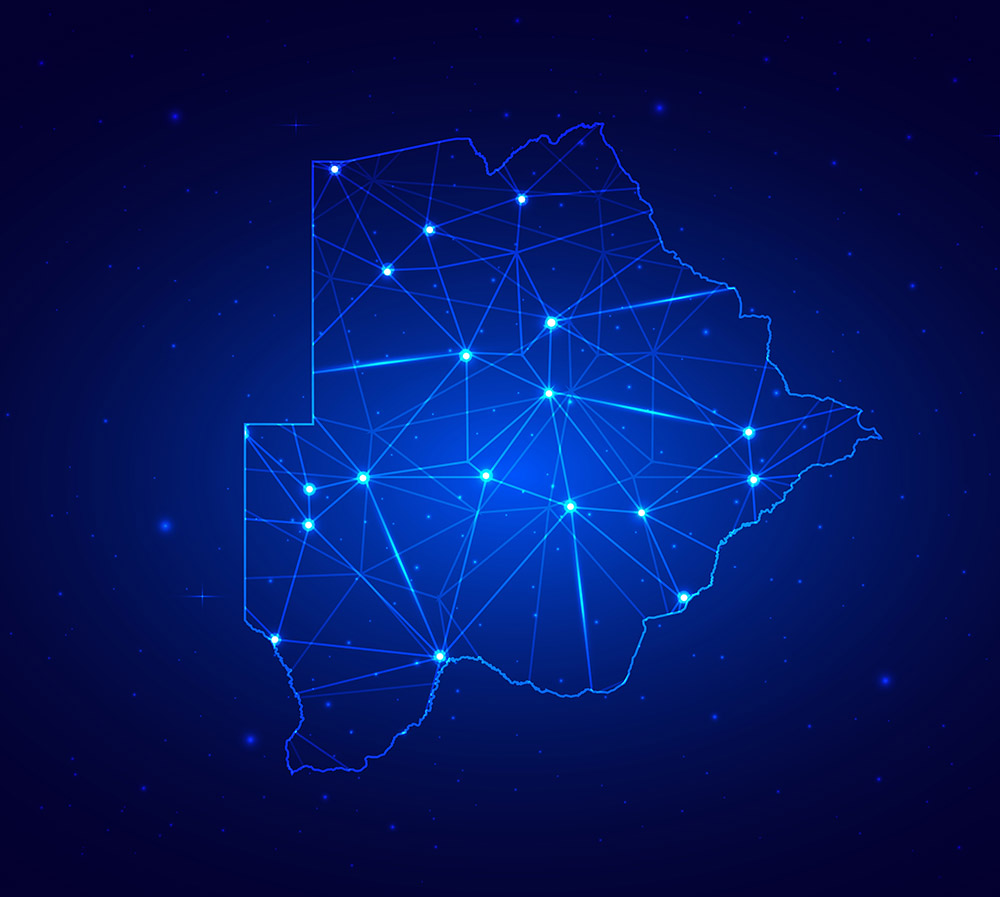Blockchain-based innovation is rising across Africa, but this relatively new technology could need to demonstrate clear value to businesses before it builds enough trust to go mainstream.
Only a few years after the first blockchain hype first began emerging, pockets of blockchain innovation are fast springing up in innovation hubs across Africa, as the public and private sector alike seek effective new systems of record with trust embedded.
With Kenya, Nigeria, Uganda and South Africa among the countries taking the lead in blockchain experimentation, the financial sector looks set to be the continent’s earliest big adopter. However, development and trials are also underway to apply blockchain technology to virtually every industry sector-from health and social development to retail and agriculture.
Helping drive blockchain growth in Africa are factors such as declining costs and rising capabilities in computing, storage, and bandwidth, which allow multiple nodes in a blockchain network to connect and act together seamlessly.
Early signs of progress
It is important to note, however, that blockchain is still relatively new, says George Etheredge, research analyst in Digital Transformation at Frost & Sullivan.
“It’s still very experimental and people are looking at use cases rather than actually adopting it at this stage,” he says.
“Across Africa there appears to be a great deal of interest, however, particularly in South Africa, Kenya and Nigeria. The banks appear to be leading in this space, which makes sense, since trust is key in that sector.”
Etheredge says some of the use cases put forward for the blockchain in Africa may not prove to be the panacea organisations hope it will.
“Cross-border remittance over blockchain is mentioned quite a lot in Africa. However, I’m cautious about how successful this would be, because it’s essentially paying in cryptocurrency to avoid paying hefty fees, but at its destination, it must still be exchanged for cash and a fee will still be incurred. In addition, it is very possible for a Bitcoin (or any cryptocurrency) to have a different market value in say, Kenya, than the US. This introduces a lot of risk into the process. This all assumes that it even is possible to exchange the cryptocurrency for cash at the destination.”
Where he does expect blockchain to deliver on its promise is in areas such as authentication and fair trade records.
“De Beers is apparently looking at blockchain to authenticate diamonds; by generating a blockchain record of the provenance of each diamond it becomes possible to prove it’s not a ‘blood diamond’. So there is potential for blockchain use in minerals and the supply chain, allowing organisations to supply a trusted certificate of authenticity that goes along with the goods.” However, Etheredge points out that even this trusted record would not be infallible for all goods: “Individual diamonds are easier to identify than other products, such as coffee for example, because you may well have all the records, but who is to say the bag of coffee in your hand is the same as the coffee in the records?”
Etheredge believes it will be several years before the blockchain becomes a mainstream technology. “Blockchain needs very good case studies in order to build market trust,” he says. While the technology promises an incorruptible ledger, it will not be widely accepted until there is proof that it is incorruptible and major enterprises use it successfully.
Unfortunately, trust in blockchain is hampered by volatility and speculation around cryptocurrency, he says. “People tend to conflate cryptocurrency, which is just an app built on the blockchain, with blockchain itself.”
“Africa has the levels of innovation and entrepreneurship needed to harness Blockchain effectively. ”
Dirk Kotze, Partner: Enterprise Solutions at Deloitte Financial Services
The trust game-changer
Dirk Kotze, Partner: Enterprise Solutions at Deloitte Financial Services, says blockchain appears to be taking off in Africa faster than people expected. “You now see significant organisations like the South African Reserve Bank dabbling with it, and there’s quite a bit of investment driving it,” he says.
Kotze believes that – as with many new technologies – the financial sector is likely to be the pioneer of widespread blockchain use. “Financial services is often a starting point, but blockchain will prove relevant across all sectors, including in the supply chain, shipping environment and airline industries – in fact wherever two parties need to transact.”
Commenting on Deloitte’s recent report Crunch Time IV: Blockchain for Finance, Kotze says that in many ways blockchain could signify the dawn of a new era as it relates to the way value is stored and exchanged. “In fact, it can be considered one of the biggest technology breakthroughs in recent history, similar to the advent of the internet in the early 1990s,” he says.
“Blockchain has the potential to reshape processes that are defined inside finance, primarily because of its cost and control benefits. Businesses with challenges such as costly slow or unreliable transactions, or that serve markets with underdeveloped payments systems or large numbers of unbanked customers, have good reason to look closely at blockchain as a useful underlying technology.”
Deloitte’s report notes that because blockchains rely on self-executing smart contracts and that the transactions are irreversible, many auditors and regulators see the technology as a way to save time and improve compliance.
Kotze says: “Over the next five years, blockchain technology could upend how businesses and marketplaces operate completely. Even more interesting, though, is the impact on the broader business processes that intersect with finance such as supply chain management. Consortia of retailers, producers and freight providers could collaborate to ensure the integrity or authenticity of products such as organic products, jewelry, prescription drugs and replacement parts. In the healthcare sector, organisations might track deductibles and out-of-pocket expenses across providers, insurance and prescription plans, pharmacies, life science companies, device manufacturers, patients, and employers.”
In Africa, Kotze sees blockchain interest and innovation coming primarily from South Africa, Kenya and Nigeria. “In East Africa, organisations are leapfrogging other technologies and moving to experiment with Blockchain. There is quite an appetite in the region to see where they can leverage blockchain technology,” he says. “Africa has the levels of innovation and entrepreneurship needed to harness the Blockchain effectively, with regions like Nigeria, Kenya and South Africa having the innovative spirit necessary to really maximise blockchain’s potential. I think Africa will run with this technology. If 2017 was the big year for blockchain pilots, I believe that by 2019 it will start becoming the de facto way of doing things.”
The technology is particularly relevant in the African context because it presents the potential to overcome trade finance and cross border payment issues, Kotze says. “However, the key issue here is scalability – its scalability across the continent has yet to be proven,” he says. In addition, uptake could be challenged by a lack of uniform standards and best practices; as well as slow introduction of regulations that cover blockchain technologies.”
Managing essential data
One company planning to maximise Blockchain’s potential in Africa is Ecobank, a pan-African banking conglomerate with operations in 36 African countries. Ecobank’s Fintech Challenge actively seeks out fintech innovations harnessing Blockchain, artificial intelligence, machine learning and other next-generation technologies.
Dr Edward George, Ecobank Head of Research at Ecobank, says blockchain combined with artificial intelligence and machine learning, presents ‘phenomenal’ potential for financial services.
“It’s one of those technologies perfectly designed for fragmented markets, particularly where integrity is at risk. We are looking at blockchain as we pioneer digital payment technologies in Africa,” he says.
As a perfect decentralised and incorruptable ‘truth engine’ that cannot be hacked, blockchain offers value in areas such as identity management, transaction records, cross-border trade and SME payments.
But, notes George, blockchain is not a panacea: “It’s not for all data, and it’s only as good as the information you put into it. Blockchain is one way of managing essential data; digitising real world systems and giving them transparency. It’s not for storing all information in the world, and there’s no point in setting it up just because someone read about it.”
The next few years will be both critical and formative for blockchain – with responsible use and careful strategy required by businesses in order not to tarnish the technology’s reputation.






